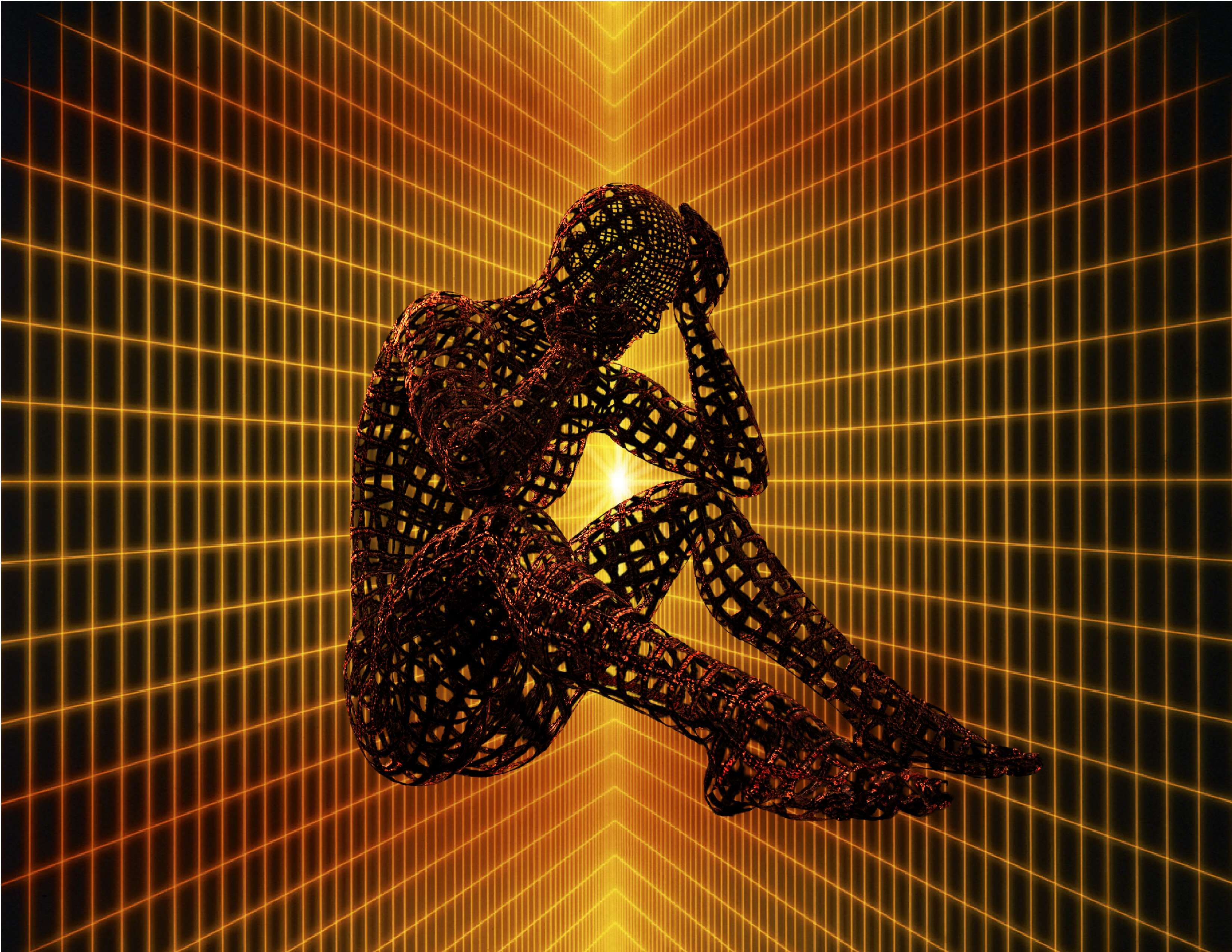 Submitted by Jacob Weiskopfh Ph.D on
Submitted by Jacob Weiskopfh Ph.D on

derivative images
I believe that the Earth revolves around the Sun, that I am wearing shoes, and that my daughter is in school right now. That seems unproblematic. But do I believe (assuming I don't stop to explicitly think about it) that my desk chair will swivel to the left, as I push off with my right foot to reach for a book? Driving to campus today, did I believe that the SUV approaching on the crossroad wouldn't blow through the red light? Reaching into my box of Triscuits, do I believe that the inner plastic bag is folded over twice to the left and that I need to unfold it to the right to access the snacks inside, as I absentmindedly, but skillfully enough, do just that?
Many philosophers, following Donald Davidson, hold that when you act intentionally, you must have beliefs about what you are doing -- beliefs that what you are doing will (or at least has a chance of) bringing about the event you want to bring about by doing that thing. Intricacies bloom if you analyze the idea carefully (which is what makes it fun philosophy), but the basic thought is that when I intentionally flip the switch to turn on the light, I want to turn on the light and I believe that by flipping the switch I will do so.
But those types of beliefs are about your actions and their effects -- not about the details of the world that shapes your actions. It would be odd to think that you could intentionally act in the world without a broad range of beliefs about your environment, but it's much less clear how much you have to believe, that is, how fine-grained or detailed your beliefs need to be. If I'm intentionally driving to work, I have to believe that I'm in my car. Maybe I have to believe that this is the route to work (though absent-mindedly driving toward a bridge you know is closed is a problem case for this claim). Probably I have to believe that the light is red, as I stop for it. But do I have to believe that all four wheels of my car are currently touching the road? Do I have to believe that the drivers nearby will stay in their lanes? Do I believe that lightpost that I don't really notice, but certainly see, is right there?
Here are two extreme views:
Restrictive View: I only believe what I explicitly reflect on. Unless the thought "I am on the correct route to work" actually bubbles up to consciousness, I don't really believe that. Unless I specifically attend to the fact that I still have two arms, I don't believe that I do.
Liberal View: I believe everything about the world that my skillful actions depend on. I believe that by shifting my weight such-and-so as I walk, I won't tip over. I believe that my right forefinger now needs to come down a half inch from the Y to hit the H I am about to strike on the keyboard. I believe that this patch of road is not yellow, and this patch, and this patch, for every patch of road that flies past my peripheral vision if it is the case (as it presumably is) that were one of those patches yellow I would steer slightly differently to give it a wider berth.
The Restrictive view seems too restrictive -- at least on the standard Anglophone philosopher's understanding of "belief", according to which, belief is, to a first approximation, synonymous with a certain standard usage of "think" or "thought" -- not the active use ("I am thinking of Triscuits") but a more passive use ("I thought there were Triscuits in the cupboard, honey?"). I can truly say to a colleague "I thought you were coming to the department meeting", i.e., I believed that he was, even if I only assumed that he was coming and I didn't entertain the specific conscious thought "Isaiah will be coming to the meeting". If knowledge of the fact that P requires believing that P, as most philosophers think (other than me, but never mind that!), it seems that we can truly say "I knew you wouldn't let me down" even if the thought that you wouldn't let me down never explicitly came to mind -- perhaps especially if the thought that you wouldn't let me down never explicitly came to mind.
On the other hand, the Liberal view seems too liberal. Normally I can report my beliefs, if you ask, but I cannot report these. (I might not even remember where the Y and the H are relative to each other, if you asked me when I didn't have a keyboard to look at.) Normally, also, our beliefs can broadly inform our reasoning, but these cannot do so. Although our habits and our fine-grained motor skills depend in some way on responsiveness to environmental details, whatever is guiding that responsiveness appears to be isolated to the execution of specific tasks rather that being generally available for cognition.
If what I've said so far is right, the best view is somewhere in the middle, between the Restrictive and the Liberal. But where in the middle? Do we have whole herds of microbeliefs that guide our action -- and which we could report, perhaps, if asked that very split second -- but which are almost all swiftly forgotten? Or are our beliefs more coarse-grained and durable than that -- the big-picture stuff that we are likely to remember for at least a minute or two?
Here's what I think: It's fine to talk either way, within broad limits, as long as you are consistent about it.
What's not fine, I'd suggest, is to commit to there being an ontologically or psychologically real sharp line, such that exactly this much availability and reportability and memory (or whatever), no more, no less, is what's necessary for belief. What's not fine, I'd suggest, is the kind of industrial-grade realism that holds that there is a precise fact of the matter, if only we could know it, that I believe exactly P, Q, and R while I'm driving and not the ever-so-slightly-more-fine-grained T, U, and V.
I hope you find this assertion plausible, reflecting on the range of examples I've given. If not, maybe I can strengthen my case by referring to other classes of phenomena where the boundaries of belief appear to be fuzzy (e.g., here, here, here, and here).
If I am right in denying this sharp line, that fact fits much more comfortably with dispositionalism about belief, which treats believing as a matter of matching, to a sufficient degree, a profile pattern of actions, thoughts, and reactions characteristic of that belief than it fits with a view on which believing requires that you possess discrete representations of P, Q, and R, which are always either discretely stored, or not stored, somewhere in the functional architecture of your mind.
Eric Schwitzgebel
http://schwitzsplinters.blogspot.com/2019/02/do-you-have-whole-herds-of-swiftly.html
- 432 reads